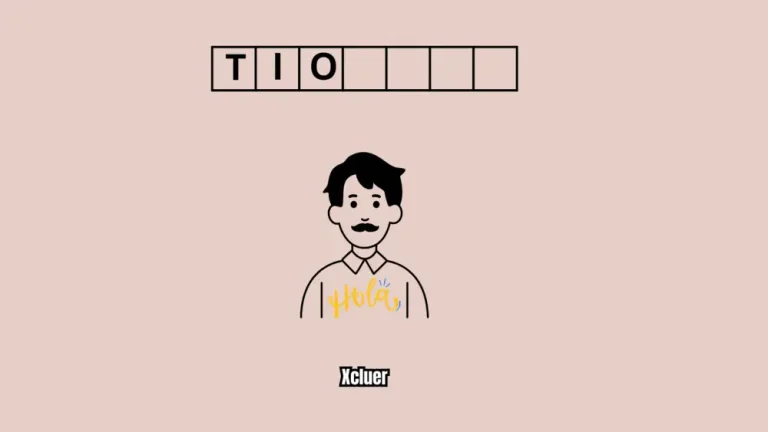You might come across the clue Uncle, in Spanish in your daily crossword puzzles. It recently showed up in the USA Today crossword, and clues like this even pop up in NYT mini crossword answers now and then. If you don’t speak Spanish, a foreign language hint can give you pause. But don’t worry it’s not as tricky as it sounds, and I’m here to explain it in a simple, friendly way.
Possible answer:

Clue and Answer Breakdown
The clue “Uncle, in Spanish” is simply asking for the Spanish word that means uncle. In Spanish, the word for uncle is tío, which in the puzzle is filled in as TIO (since crosswords usually drop accent marks). It’s a straightforward translation just three letters long so it fits nicely in the crossword grid. If you filled in TIO, you’re correct!
Why TIO is the Correct Answer
You might be wondering why the answer is TIO. The clue points us to Spanish, which means it’s asking for a direct translation of “uncle” and tío is indeed Spanish for uncle. There’s no other trick in play here. Anytime you see a clue like this (for example, “water, in French” or “red, in Spanish“), you just translate the word into the indicated language. If you had a few letters already from crossing answers, they would likely form TIO, confirming it’s a perfect fit. And as mentioned, crosswords typically drop accents and special characters, so we spell tío as TIO in the puzzle.
Fun Fact About TIO
As a fun bit of trivia, tío in Spanish doesn’t only mean an actual uncle. In informal speech (especially in Spain), tío is often used as a slang term for a guy or pal kind of like saying “dude” or “mate” in English. So if you hear someone exclaim “¡Hola, tío!”, they’re probably just greeting a friend with a casual “Hey, man!” It’s a neat little cultural fact that makes this simple word even more interesting.
Solving Tips for Similar Clues
Foreign language clues are actually pretty common in crosswords, but they get easier once you know what to look for. When a clue ends with something like “… in Spanish” (or French, Italian, etc.), it’s telling you the answer will be a word from that language. It helps to remember some basic short words in other languages that crossword puzzles love to use. For Spanish, for example, besides tío for uncle, it’s good to know tía (aunt), agua (water), uno (one), and so on. These often pop up as answers in puzzles.
If you’re ever unsure about a foreign word clue, try filling in some of the intersecting answers those crossing letters can guide you toward the right word. And to get better with these kinds of clues, practice makes perfect. Solving more puzzles (there are plenty of free crossword puzzles available online) will expose you to common foreign terms and help them stick in your memory. Over time, you’ll start recognizing them on sight and solving them will become second nature.
Keep Going and Enjoy Puzzles
Don’t be discouraged if clues in another language slow you down at first. Every crossword you solve teaches you a little something new maybe a new word, a translation, or a piece of trivia. No matter if you’re tackling a big weekend crossword or a quick mini crossword during a coffee break, each puzzle is good practice. Keep at it, have fun, and you’ll find that even the tricky clues get easier with time.
Disclaimer
This article is meant to help you understand a crossword clue and enjoy your puzzles. All crossword names and trademarks, including the NYT and USA Today crossword, are property of their respective owners. We are not affiliated with The New York Times, USA Today, or any other publication mentioned above we’re just crossword fans hoping to help you solve.
Did you find this helpful?
Look for more clues & answers
You may be interested
vault opener nyt crossword
Some crossword clues are more playful than they first appear,...
